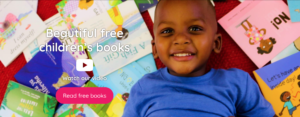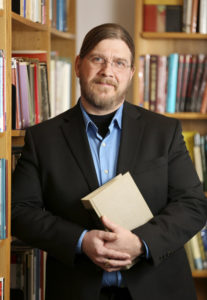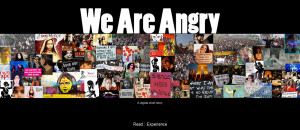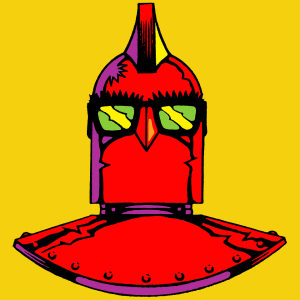Publishing Talks: Interview with George Slowik, Jr. of Publishers Weekly
February 23, 2022 by David
Filed under Publishing History, PublishingTalks
 Publishing Talks began as a series of conversations with book industry professionals and others involved in media and technology, mostly talking about the future of publishing, books, and culture. I’ve spent time talking with people in the book industry about how publishing is evolving in the context of technology, culture, and economics.
Publishing Talks began as a series of conversations with book industry professionals and others involved in media and technology, mostly talking about the future of publishing, books, and culture. I’ve spent time talking with people in the book industry about how publishing is evolving in the context of technology, culture, and economics.
Some years ago, this series broadened to include conversations that go beyond the future of publishing. In an effort to document the literary world, I’ve talked with a variety of editors, publishers and others who have been innovators and leaders in independent publishing in the past and into the present.
These conversations have been inspirational to me on many levels. I have gotten to speak with visionaries and entrepreneurs, as well as editors and publishers who have influenced and changed contemporary literature and culture. I’ve also had the opportunity to speak with a number of friends and colleagues I have met over the many years I have been in the book business.
2022 is the 150th anniversary of Publishers Weekly, the essential trade magazine of the book industry. The magazine was founded in 1872, and the fact that it has not just survived, but thrived for most of the many years it has been published says something about both the book industry and the people who have been part of its trade media.
Just as it has done for so many magazines, the digital era has meant change for Publishers Weekly, and credit is due to current ownership for guiding it successfully through very difficult times. Those of us who have been around the book business for a long time remember PW as it is ubiquitously called, when it had a lot more pages than it does today, and when it was literally the only way to get news about publishing and bookselling in one reliable place. Now the print magazine is relatively short, most of us consume it digitally, and the magazine’s products and revenues are radically different from what they were just a few years ago, including a variety of newsletters, podcasts and other digital products.
George Slowik, Jr. is the owner of the magazine’s parent company, PWxyz, LLC. Slowik had been the publisher of the magazine from 1990-1993 and later ran the excellent magazine, American Prospect, and then in 2010 he bought it from its then owner, Reed Business Information, which was in the process of selling off its entire portfolio of publications.
When Publishers Weekly was originally launched it was the bibliographical source commercial publishers used to list their forthcoming titles for booksellers. The book business was relatively small at that time, with most publishers clustered in a few cities, especially New York and Boston. Over the many years it was in business, the magazine expanded to provide news and stories about the publishing industry, and today, while the industry and the media that serves it have grown, it still is an essential source of title data, publishing over 9,000 book reviews annually at a time when book reviews are more needed than ever.
In this podcast we talked about the magazine’s history, the creation of the digital archive of its entire run, activities around the 150th anniversary year, the past, present and future state of publishing, and much more.
Even if you are not an active participant in the book industry, the history of publishing is valuable to know about as it is in many ways the history of modern culture. You can learn more about Publishers Weekly and sign up for their free email newsletters, at their website. 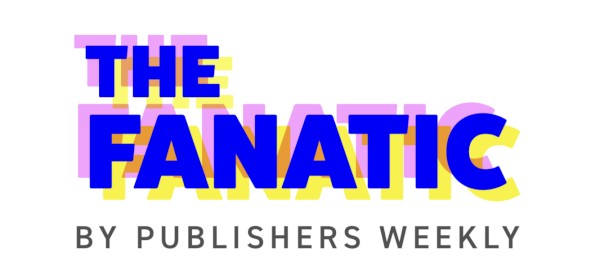
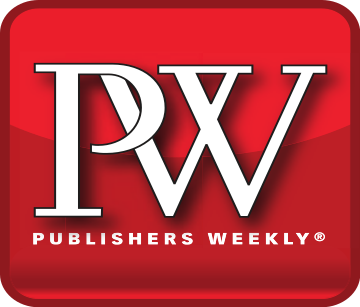
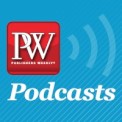
Podcast: Play in new window | Download
Publishing Talks: Interview with Arthur Attwell
February 2, 2021 by David
Filed under Ebooks and Digital Publishing, PublishingTalks, Technology
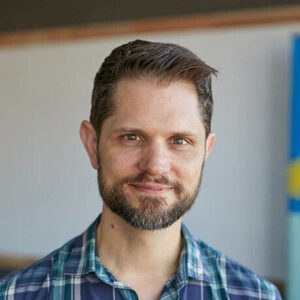 Publishing Talks began as a series of conversations with book industry professionals and others involved in media and technology, mostly talking about the future of publishing, books, and culture. I’ve spent time talking with people in the book industry about how publishing is evolving in the context of technology, culture, and economics.
Publishing Talks began as a series of conversations with book industry professionals and others involved in media and technology, mostly talking about the future of publishing, books, and culture. I’ve spent time talking with people in the book industry about how publishing is evolving in the context of technology, culture, and economics.
Some time back, this series broadened to include conversations that go beyond the future of publishing. In an effort to document the literary world, I’ve talked with a variety of editors, publishers and others who have been innovators and leaders in independent publishing in the past and into the present.
These conversations have been inspirational to me on many levels. I have gotten to speak with visionaries and entrepreneurs, as well as editors and publishers who have influenced and changed contemporary literature and culture.
Today’s guest is another such special individual. Arthur Attwell, who lives in Capetown, South Africa, got his start in publishing working for Oxford University Press as an editor. Impatient with the inefficiencies of publishing, he left to start up his current venture with some collaborators, Electric Book Works, which has been building books since 2006 that are active in multiple formats and versions, from beautifully produced print books to well fashioned ebooks to websites that express the book form in new ways.
In addition to the work he has done with Electric Book Works, this energetic entrepreneur has co-created an impactful health care information project, Bettercare, which has created and distributed healthcare learning materials to thousands of practitioners and consumers all over Africa. Although this project, entirely volunteer run, has had to cut back on its activities because of the pandemic, its impact continues with part timers and reduced capabilities.
Perhaps the most exciting efforts I have learned about recently is yet another Attwell project, Book Dash. Arthur and his partners created (and have since carefully refined) a process that assembles teams of book professionals to create and publish children’s books, and which also the raises money and support needed for the printing and distribution of thousands of books across Africa, with the stated goal that every child should own 100 books by the time they are five years old! The Book Dash process was built as an intensive one day effort, gathering teams in person, but has quickly adapted to a virtual model, enabling contributors to participate from multiple physical locations. They have made some really terrific books using this process and Book Dash has now distributed over one million books to children in Africa.
With the time difference between us, arranging this talk required bit of organizing, but we were able to speak recently by Skype. My original goal was simply to give Arthur an opportunity to talk about Book Dash. But we ended up having a much wider conversation on a range of topics, including distributed print on demand printing, a dream concept we both have explored, and much more. I suspect we will talk further in the necessary follow up conversation I hope to have with him as there are so many exciting ideas to discuss.
For now, I hope you will enjoy listening to Arthur Attwell as much as I did.
Arthur’s “On Transit” Talk
Podcast: Play in new window | Download
David Wilk interviews Tony Sanfilippo of Ohio State University Press
May 6, 2018 by David
Filed under Ebooks and Digital Publishing, PublishingTalks, The Future
Publishing Talks began as a series of conversations with book industry professionals and others involved in media and technology, mostly talking about the future of publishing, books, and culture and have now expanded the series to include conversations that go beyond the future of publishing. I’ve talked with editors and publishers who have been innovators and leaders in independent publishing in the past and into the present, and will continue to explore the ebb and flow of writing, books, and publishing in all sorts of forms and formats, as change continues to be the one constant we can count on.
Tony Sanfilippo is director of the Ohio State University Press in Columbus, Ohio. Under his direction, the press has expanded its trade book and regional publishing programs in interesting and innovative ways, while maintaining a strong commitment to scholarly publishing.
Before joining OSU Press in 2014, Tony was at Pennsylvania State University Press, where he was marketing director and assistant director, having started there as acquisitions editor of regional titles. While at Penn State, he was actively involved with the press’s digital programs. He has also had key roles with the Association of American University Presses and The Association of American Publishers.
Tony is a graduate of Southern Illinois University, and before becoming involved in publishing, he spent more than 20 years as a trade bookseller, as co-owner and manager of Svoboda Scholarly Books in State College, Pennsylvania.
New technology continues to have a big impact on academic and scholarly publishing, and many university presses are actively engaged in exploring and applying digital technology and implementing new publication strategies. Sanfilippo devotes a significant percentage of his time on these issues, and his unusual background and broad pop culture subject interests make him a compelling subject for a Publishing Talks interview.
It was a pleasure to spend some time in a wide ranging conversation about the challenges and opportunities facing university press publishing with this very smart and interesting press director.
Here is a description of OSU Press from its website:
We specialize in literary and cultural studies (including comics, narrative theory, Victorian studies, and medieval studies), American studies, rhetoric and communication, gender and sexuality studies, and race and ethnic studies (including Black studies and Latinx studies). We also acquire books in regional studies on our Trillium imprint, creative works, on our Mad Creek imprint, and linguistics, and publish the annual winners of The Journal’s non/fiction and poetry prizes.
Among the most notable titles published by the Press are Language Files, an introductory linguistics textbook now in its 12th edition; The Centenary Edition of the Works of Nathaniel Hawthorne, the definitive 23-volume edition of the American master’s writings; The Death of Contract, a classic in legal studies; and Listen to Me Good, a moving autobiography of an Alabama midwife. The Press was the original publisher of the Helen Hooven Santmyer blockbuster “. . . And Ladies of the Club,” which is now out of print.
In addition to its books, the Press publishes a distinguished group of journals including Inks, the Journal of the Comics Studies Society, Adoption & Culture, American Periodicals, Victorians, North American Journal of Celtic Studies, and Narrative.
Visit the OSU Press website for more information about their books and programs and read a very useful post, University Press Publishing Under an Autocracy by Tony Sanfilippo at the always interesting Scholarly Kitchen.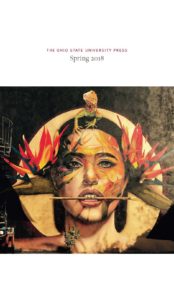
Podcast: Play in new window | Download
David Wilk interviews Joanna Penn of The Creative Penn
September 11, 2017 by David
Filed under Ebooks and Digital Publishing, PublishingTalks, The Future
 Publishing Talks began as a series of conversations with book industry professionals and others involved in media and technology, mostly talking about the future of publishing, books, and culture. As every media business continues to experience disruption and change, I’ve been talking with some of the people involved in our industry about how publishing might evolve as it is affected by technology and the larger context of culture and economics.
Publishing Talks began as a series of conversations with book industry professionals and others involved in media and technology, mostly talking about the future of publishing, books, and culture. As every media business continues to experience disruption and change, I’ve been talking with some of the people involved in our industry about how publishing might evolve as it is affected by technology and the larger context of culture and economics.
I’ve now expanded this interview series to include conversations that go beyond the future of publishing. I’ve talked with editors and publishers who have been innovators and leaders in independent publishing in the past and into the present, and will continue to explore the ebb and flow of writing, books, and publishing in all sorts of forms and formats, as change continues to be the one constant we can count on.
The rise of self publishing authors is one of the most significant elements of change in the modern publishing landscape. Technology is one element – ebooks and digital short run printing (aka print on demand) give authors access to low cost production and distribution capabilities. The internet as a disseminator of information has helped to democratize publishing skills and knowledge, and generally to drive down the costs of production for books of all kinds. Disruption among traditional publishers has also helped by creating a large pool of experienced freelancers that can provide high level publishing services at reasonable cost.
And crucially, a large group of successful do-it-yourself publishing authors and publishing professionals have become teachers and guides, assisting writers at every level of experience, of every kind of writing, to themselves learn the ropes of what was once a somewhat esoteric set of skills and knowledge. And because change is such a prominent feature in the modern publishing environment, no author can afford to not be in a continual state of learning. The advisors, consultants and teachers who both know “how to do it” and how to keep learning have become tremendously important resources for a wide range of authors.
One of the best of the brightest of these is UK-based writer Joanna Penn. Her fantastic website, The Creative Penn, has become one of the largest of its kind in the literary world. Joanna is an award-winning, best-selling thriller writer and she writes really good nonfiction books for authors. She is now a publisher too (Curl Up Press), a speaker, and of course, an entrepreneur. She’s endlessly energetic, smart, perceptive, and gives consistently great advice. I am a regular reader of her work, and refer to it frequently on the self publishing blog I operate myself.
I could not pass up the opportunity to speak with Joanna about her work as a writer and self publishing guide. It was great fun for me, and I am sure will be for my listeners as well. Even if you never self-publish your work, it is well worth hearing what she has to say. At least for me, the time flew by, and we could easily have talked much longer. Thank you Joanna!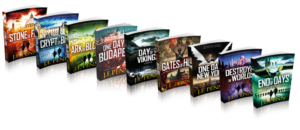

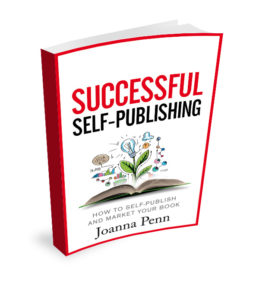
Podcast: Play in new window | Download
David Wilk interviews Peter Costanzo of Associated Press
October 2, 2016 by David
Filed under Ebooks and Digital Publishing, PublishingTalks, Technology, The Future
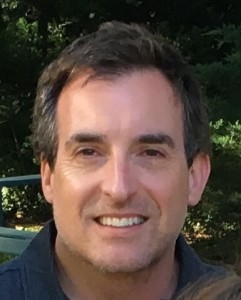 Publishing Talks began as a series of conversations with book industry professionals and others involved in media and technology about the future of publishing, books, and culture. As we continue to experience disruption and change in all media businesses, I’ve wanted to talk with people involved in our industry about how publishing might evolve as our culture is so influenced by technology, within the larger context of a change across human civilization.
Publishing Talks began as a series of conversations with book industry professionals and others involved in media and technology about the future of publishing, books, and culture. As we continue to experience disruption and change in all media businesses, I’ve wanted to talk with people involved in our industry about how publishing might evolve as our culture is so influenced by technology, within the larger context of a change across human civilization.
This series has expanded to include conversations that go beyond the future of publishing. I’ve talked with editors and publishers who have been innovators and leaders in independent publishing in the past and into the present, and will continue to explore the ebb and flow of writing, books, and publishing in all sorts of forms and formats, as change continues to be the one constant we can count on.
Back in 2011 I spoke with my friend Peter Costanzo, who even then was one of the most experienced and knowledgeable digital thinkers in the book industry. Five years later, as digital publishing has evolved and to some extent stabilized, I thought it would be useful to speak to him again to benefit from his perspective as an active participant in this aspect of our industry.
Peter is now the Digital & Archival Publishing Manager for The Associated Press. He is an award-winning book producer who also teaches the “New Media Technology: Formats and Devices” course at NYU.
Peter is also now known for being the person who taught Donald J. Trump (yes that guy) how to use Twitter! This story was widely reported earlier this year, gaining Peter considerable attention and perhaps, notoriety. Here is what the AP said in its story:
Costanzo crossed paths with Trump in 2009 when he was working as online marketing director for the publisher putting out the businessman’s book, “Think Like a Champion.” Twitter was still in its infancy at the time. But Costanzo saw the 140-character-per-message platform as a new tool that the real estate mogul could use to boost sales and reach a broader audience.
He was given seven minutes to make his pitch to Trump — “Not five minutes, not 10,” Constanzo said — in a boardroom at Trump Tower in Manhattan that appeared to be the same one used on Trump’s reality television show.
Trump liked what he heard.
“I said, ‘Let’s call you @RealDonaldTrump — you’re the real Donald Trump,'” Costanzo said. “He thought about it for a minute and said, ‘I like it. Let’s do it.'”
Our talk for this occasion focused on much more serious and meaningful matters, however.
You can follow Peter on Twitter @PeterCostanzo and Writerscast @writerscast.
Podcast: Play in new window | Download
David Wilk interviews Jess Brallier
June 21, 2016 by David
Filed under Ebooks and Digital Publishing, Publishing History, PublishingTalks, The Future
 Publishing Talks began as a series of conversations with book industry professionals and others involved in media and technology about the future of publishing, books, and culture. As we continue to experience disruption and change in all media businesses, I’ve been talking with some of the people involved in our industry about how publishing might evolve as our culture is affected by technology and the larger context of civilization and economics.
Publishing Talks began as a series of conversations with book industry professionals and others involved in media and technology about the future of publishing, books, and culture. As we continue to experience disruption and change in all media businesses, I’ve been talking with some of the people involved in our industry about how publishing might evolve as our culture is affected by technology and the larger context of civilization and economics.
I’ve now expanded the series to include conversations that go beyond the future of publishing. I’ve talked with editors and publishers who have been innovators and leaders in independent publishing in the past and into the present, and continue to explore the ebb and flow of writing, books, and publishing in all sorts of forms and formats, as change continues to be the one constant we can count on.
Jess Brallier is one of those interesting, experienced innovators in publishing with whom I enjoy talking about all sorts of book related subjects. He’s worked in adult trade publishing, but has also had significant success with children’s and YA books, has long been involved in digital technologies, and notably was instrumental in the creation of the wildly best selling Diary of a Wimpy Kid by Jeff Kinney. And he is a prolific book writer himself, as well. His vast experience has provided him with a unique perspective about books and publishing, and he is just the kind of person who makes this interview series interesting and fun for me to do.
Here’s the more or less “official” biography Jess sent me: Jess M. Brallier currently serves the publishing industry as a media and revenue agnostic consultant to small, mid, and large publishing houses, and a developer of original IP, both print and animated. His career spans th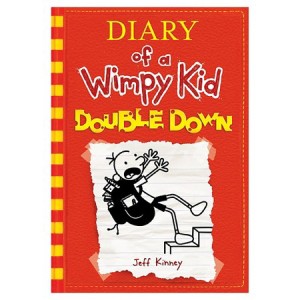 e publishing of books and digital storytelling from brick-and-mortar and the web, to virtual worlds and social media. He had his own children’s imprint, Planet Dexter (Penguin) and used the web to establish and launch newly $800M in original IP (Diary of a Wimpy Kid, Big Nate, Poptropica, Galactic Hot Dogs, etc.)
e publishing of books and digital storytelling from brick-and-mortar and the web, to virtual worlds and social media. He had his own children’s imprint, Planet Dexter (Penguin) and used the web to establish and launch newly $800M in original IP (Diary of a Wimpy Kid, Big Nate, Poptropica, Galactic Hot Dogs, etc.)
He also worked closely with, and was essential to causing bestsellers for, Norman Mailer, William Manchester, William Least Heat Moon, Herman Wouk, William Shirer, Bailey White, Anne Morrow Lindbergh, and many others. Brallier is a frequent speaker at both digital and book industry conferences, has served on the faculty of university-based publishing programs, and is the author or co-author of over 30 adult and children’s books.
I hope you enjoy listening to Jess as much as I did.
And not too long at 41 minutes, in case you were wondering.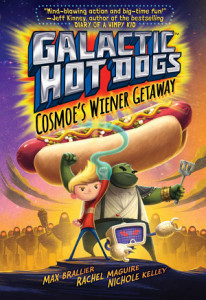
Podcast: Play in new window | Download
David Wilk talks with Lyndee Prickitt about We Are Angry
June 7, 2015 by David
Filed under Ebooks and Digital Publishing, PublishingTalks, Technology, The Future
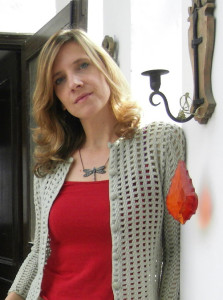 Lyndee Prickitt’s powerful and engaging storytelling project, We Are Angry, fits readily into both the categories of interviews I am doing here – she’s both the author of the (book) project as well as the primary publishing impressario who put together an innovative form of digital storytelling. But the interview does need to go into just one category, so I have chosen to call it a Publishing Talks interview. Publishing Talks began as a series of conversations with book industry professionals and others involved in media and technology about the future of publishing, books, and culture; Lyndee Prickett’s work is an important addition to that conversation.
Lyndee Prickitt’s powerful and engaging storytelling project, We Are Angry, fits readily into both the categories of interviews I am doing here – she’s both the author of the (book) project as well as the primary publishing impressario who put together an innovative form of digital storytelling. But the interview does need to go into just one category, so I have chosen to call it a Publishing Talks interview. Publishing Talks began as a series of conversations with book industry professionals and others involved in media and technology about the future of publishing, books, and culture; Lyndee Prickett’s work is an important addition to that conversation.
We Are Angry is a fictional response to the very real and difficult issues of rape and abuse of women in modern India.
From the We Are Angry website:
“After the brutal December 16, 2012 gang-rape in New Delhi, many people in India and beyond felt a need to express their anger, fears and concerns about why this was happening. Women and men took to the streets to put a voice to their anger. Social media swelled with introspection and pontification. Anonymous mourners created real life and online commemorations. Movie stars satirized and campaigned. Artists painted street walls and canvasses. Actors staged plays in local parks and international cultural festivals. Screenwriters wrote movies. Singers sang.
The conversation across the nation changed. Women and their rights was not just a matter for earnest do-gooders and NGOs, but the topic du jour and the inspiration for a panoply of expression for weeks and months. And then the din quietened. People tired of talking about how women, at home and abroad, have been and should be treated.
We Are Angry is an effort to keep the conversation alive – fusing traditional fictional text storytelling with other media, bolstered by real news content and annotations, and showcasing a range of art and expression from a team of people who want to harness their anger and work creatively for change.”
Lyndee Prickitt is a multimedia writer and journalist. She created her company, Digital Fables, to tell stories using the web as a platform. After working with Reuters and the BBC for more than 15 years, she wrote and produced the award winning digital short-story, Weareangry.net. Though a native Texan, Prickitt lives in New Delhi with her Indian husband and their daughter.
We Are Angry was nominated for a Webby, won the Transmedia Story of the Year from Digital Book World, and was a runner up in the New Media Writing Prize. The Guardian newspaper called it “devastatingly powerful.”
There has been a great deal of discussion within the international ebook community about whether digital storytelling will migrate away from devices and out to the web. What Lyndee Prickitt has done with We Are Angry is a powerful example of how this can be done. When you land on the site, you are immediately offered two options, one to “read” and the other to “experience” the story. I suspect most readers choose first to experience the story.
I really like what she says on the We Are Angry site about this project:
“We are living in mixed media times and yet rarely do we find the media coalescing in a truly integrated and artistic way, a way that could take storytelling – especially issue-based storytelling – to another level, not replacing books or the linear text experience, but offering another construct.
We Are Angry is an attempt, a humble first attempt, at doing this: creating 360 degree digital fiction.”
Listen to this interview, then visit the website and experience the story for yourself. Let me know what you think about it.
Podcast: Play in new window | Download
David Wilk talks with Dominique Raccah of Sourcebooks
February 1, 2015 by David
Filed under Ebooks and Digital Publishing, Publishing History, PublishingTalks, Technology, The Future
 Publishing Talks began as a series of conversations with book industry professionals and others involved in media and technology about the future of publishing, books, and culture. As we continue to experience disruption and change in all media businesses, I’ve been talking with some of the people involved in our industry about how publishing might evolve as our culture is affected by technology and the larger context of civilization and economics.
Publishing Talks began as a series of conversations with book industry professionals and others involved in media and technology about the future of publishing, books, and culture. As we continue to experience disruption and change in all media businesses, I’ve been talking with some of the people involved in our industry about how publishing might evolve as our culture is affected by technology and the larger context of civilization and economics.
I’ve now expanded the series to include conversations that go beyond the future of publishing. I’ve talked with editors and publishers who have been innovators and leaders in independent publishing in the past and into the present, and will continue to explore the ebb and flow of writing, books, and publishing in all sorts of forms and formats, as change continues to be the one constant we can count on.
It’s my hope that these conversations can help us understand the outlines of what is happening in publishing and writing, and how we might ourselves interact with and influence the future of publishing as it unfolds.
Dominique Raccah is the founder and CEO of independent publisher Sourcebooks, based in Naperville, Illinois, which she began in 1987 after an earlier career in advertising. Reflecting Raccah’s background and interests, Sourcebooks has always been strongly oriented toward marketing and promotion, devoting countless hours and dedicating significant resources to research, intelligence and outreach, and to understanding what customers want. This significantly differentiates Sourcebooks from most other independent publishers, so many of whom are more focused on developing content as opposed to what the customer needs or wants.
But Raccah is more than a smart marketer. She is a highly capable business person, an active entrepreneur, and somewhat of a visionary in terms of technology, business structure. She has been and continues to be willing and able to pivot on her business models and plans much more quickly and readily than most of her peers.
At this stage, after more than a quarter century of successful innovation, she has become a thought leader in the book industry and her presentations about publishing and business structure and opportunities are often models of clarity and deep perception, that are valued by colleagues and competitors alike. In November 2013 she was named FutureBook’s Most Inspiring Digital Publishing Person of 2013.
Indicative of the ways Raccah has embraced technology to drive her business forward, in an interview with the Chicago Tribune last year she said that digital technology “has been transformative because it allows you to tackle new kinds of problems and create new ways of connecting books and readers.”
In our conversation, which took place in New York City in January, 2015, we covered a wide range of topics, from the history of Sourcebooks, through the present business and publishing landscape that interests and motivates Dominique as she continues to moves her company forward in a highly challenging environment. Much of our conversation focuses on Raccah’s industry leading efforts to work directly with readers to make Sourcebooks’ publishing brands meaningful to readers, and to learn directly what consumers want in their reading experiences. After a concerted effort over the past few years, Sourcebooks is now one of the leaders in the book industry in selling books directly to readers. It was a pleasure speaking with Dominique – who gives a great interview – and I hope this is a conversation that will be both useful and valuable to anyone interested in contemporary publishing.
Sourcebooks features a long list of innovative and successful publishing programs and projects, including Poetry Speaks, The Shakesperience, an interactive iBook that combines audio, video and a glossary to aid understanding of Shakespeare’s plays, and Put Me In The Story, which customizes children’s picture books with the reader’s own name and photos to get kids excited about reading.
Raccah has a master’s degree in quantitative psychology from the University of Illinois at Chicago Circle and worked at Leo Burnett’s quantitative research department before starting Sourcebooks in her home in 1987.
Sourcebooks now has 120 employees, eight imprints and publishes more than 350 titles annually, several of which have been national best-sellers in recent years.
Some worthwhile links:
Dominique’s TedX slideshare The Book in Transformation: A Publisher Vision for the Future
Chicago Tribune interview with Dominique Raccah
Mercy Pilkington article Sourcebooks Dominique Raccah Speaks on Driving Innovation
Put Me in the Story site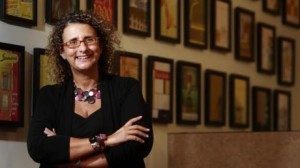
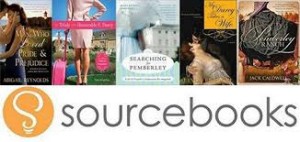
Podcast: Play in new window | Download
David Wilk talks with Andrew Lipstein about 0s and 1s
July 20, 2014 by David
Filed under Ebooks and Digital Publishing, PublishingTalks, The Future
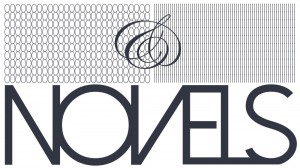 Publishing Talks began as a series of conversations with book industry professionals and others involved in media and technology about the future of publishing, books, and culture. As we continue to experience disruption and change in all media businesses, I’ve been talking with some of the people involved in our industry about how they believe publishing might evolve as our culture is affected by technology and the ebb and flow of civilization and economics.
Publishing Talks began as a series of conversations with book industry professionals and others involved in media and technology about the future of publishing, books, and culture. As we continue to experience disruption and change in all media businesses, I’ve been talking with some of the people involved in our industry about how they believe publishing might evolve as our culture is affected by technology and the ebb and flow of civilization and economics.
I’ve now expanded the series to include conversations that go beyond the future of publishing. I’ve talked with editors and publishers who have been innovators and leaders in independent publishing in the past and into the present, and will continue to explore the ebb and flow of writing, books, and publishing in all sorts of forms and formats, as change continues to be the one constant we can count on.
It’s my hope that these conversations can help us understand the outlines of what is happening in publishing and writing, and how we might ourselves interact with and influence the future of publishing as it unfolds. This new interview reflects my interest in the history of independent literary publishing, an area in which I have been active for a long time. And this particular conversation reflects some longstanding personal relationships as well.
Andrew Lipstein is one of the new wave of writers interested in changing the way books are published, distributed and read. When I first read about his new venture 0s and 1s, I was immediately interested (that’s “zeroes and ones” – I misread it initially as “os and 1s” and you will hear that in my interview with Andrew). 0s and 1s is a curation project, offering ebooks for download at very attractive prices selected from a limited number of like-minded independent publishers. It is diametrically opposed to the way we have been trained to think about ebook retailing, where for the most part, readers are tied to the ecosystems created by the platform owners.
For example, if you are a Kindle reader, you buy all your ebooks from Amazon, for example, and whether you know it or not, or care or not, your choices of what to read, or what to think about reading, are highly contextualized. Online ebook stores have incredible limitations, and ironically, the huge breadth of titles potentially available to readers ultimately mean a hegemonically limited selection of reading possibilities.
As Andrew states on the 0s and 1s site: “The selling of digital books has become an oligopoly, with only a few important players—& a lot of power. The world of e-reading shouldn’t be proprietary to any one brand, reader, or (set of) publishers. Selling a digital book is as simple as transmitting a series of zeroes & ones, & there’s never been a better time to take advantage of that fact.”
Personally, I think it’s an opportune moment for publishers and writers to start experimenting with alternative models of engaging with readers. Andrew and the publishers and authors he is promoting here deserve credit and support for taking a necessary step toward demonstrating how we might imagine alternatives to big box retail book selling and a better way to promote a culturally diverse and meaningful reading culture. 0s and 1s is aware of the need to explain to readers what it’s doing by selling all its ebooks at $6 each and has a very clear explanation of why this is good for authors on its website.
Andrew Lipstein is a writer too, and also curates a really interesting micro-publishing site, well worth a visit, called Thickjam.
In many ways this project reminds me of some of the experiments in independent book distribution and marketing from the seventies (many supported by what was then called CCLM, the Coordinating Council of Literary Magazines – now called CLMP – with a grant from the Ford Foundation). Some of those projects were highly influential and in various forms lasted for a number of years. I hope we can say the same about 0s and 1s in the future.
If you’re interested in the history of CCLM and CLMP and the organization’s key role in supporting independent magazine and book publishers, there is a nice bit of history here. The Publishing Talks interview with CLMP’s current dynamic director Jeffrey Lependorf is here. You can find links to publishers participating in the 0s and 1s project here. One of the several distribution projects funded by CCLM and the Ford Foundation was Truck Distribution Service, started in St. Paul, MN, by yours truly, which later became the very successful small press wholesaler, Bookslinger, and another was the still flourishing Writers and Books, founded in Rochester, NY, by Joe Flaherty.
Thanks to John Marshall Media and engineer Nathan Rosborough for this recording.
Podcast: Play in new window | Download
Fred Seibert talking Frederator and more
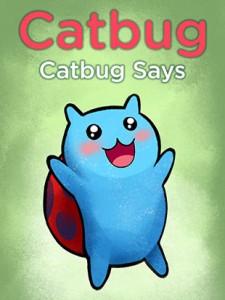 As some of you may know, I am working with Frederator Studios on a digital publishing program called Frederator Books. We are experimenting in all sorts of ways, mostly doing creative new ebooks for kids of all ages. Frederator is the brainchild of long time media genius Fred Seibert. We did a video interview together in December 2013 and posted the unedited audio track to Soundclound. It’s a bit long and covers a lot of ground, but anyone interested in media and animation will find Fred’s conversation interesting and constructive. We talked about Fred’s background and experience in a long and innovative career, what Frederator is doing now and in the future, and also about what we are trying to do in digital publishing.
As some of you may know, I am working with Frederator Studios on a digital publishing program called Frederator Books. We are experimenting in all sorts of ways, mostly doing creative new ebooks for kids of all ages. Frederator is the brainchild of long time media genius Fred Seibert. We did a video interview together in December 2013 and posted the unedited audio track to Soundclound. It’s a bit long and covers a lot of ground, but anyone interested in media and animation will find Fred’s conversation interesting and constructive. We talked about Fred’s background and experience in a long and innovative career, what Frederator is doing now and in the future, and also about what we are trying to do in digital publishing.
You can listen to the entire interview here. Sometime later in 2014, I will post an edited version of the interview at Writerscast also.
Frederator Studios and Cartoon Hangover make cartoons for television, movies and the Internet, and program the networks Channel Frederator and Cartoon Hangover.
Frederator Studios was founded by Fred Seibert in 1998. Since then the company has produced 16 series & over 200 short films including The Fairly OddParents, Fanboy & Chum Chum, and Adventure Time. Our shows are on Nickelodeon, Nick Jr, Cartoon Network, and Channel Frederator. Frederator is in producing partnership with Sony Pictures Animation and YouTube.
Cartoon Hangover is the studio’s television channel distributed on YouTube, launched in November 2012. Pendleton Ward’s Bravest Warriors (developed by Breehn Burns, Will McRobb & Chris Viscardi) was the first hit series, followed by James Kochalka’s SuperF*ckers, and the Too Cool! Cartoons.
Frederator Networks’ pioneering Internet animation channels began in 2005 with Channel Frederator, and has expanded to include The Wubbcast, ReFrederator and Cartoon Hangover.
– See more here.
Here’s the “standard” Fred biography.


